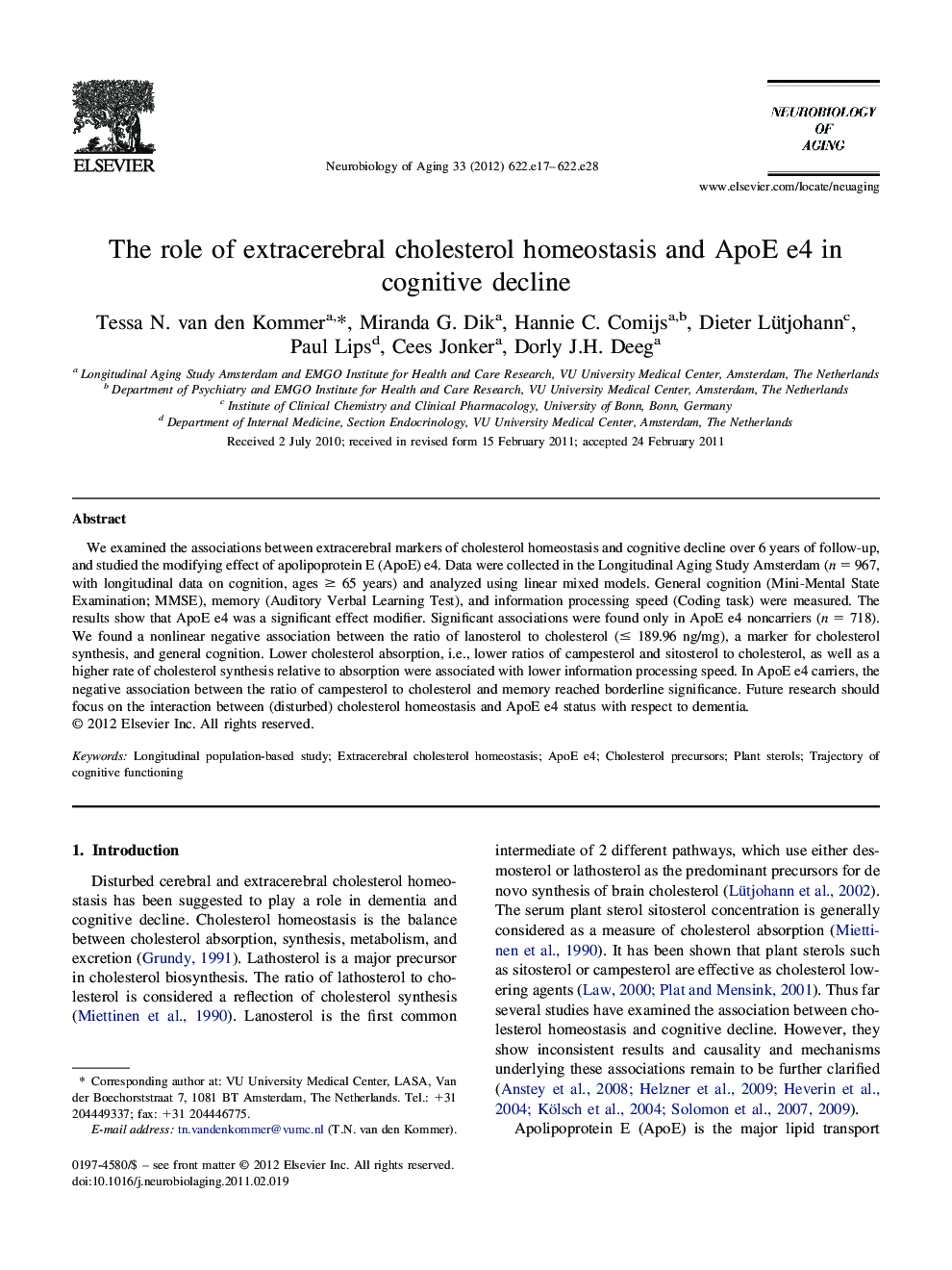| Article ID | Journal | Published Year | Pages | File Type |
|---|---|---|---|---|
| 6809683 | Neurobiology of Aging | 2012 | 12 Pages |
Abstract
We examined the associations between extracerebral markers of cholesterol homeostasis and cognitive decline over 6 years of follow-up, and studied the modifying effect of apolipoprotein E (ApoE) e4. Data were collected in the Longitudinal Aging Study Amsterdam (n = 967, with longitudinal data on cognition, ages ⥠65 years) and analyzed using linear mixed models. General cognition (Mini-Mental State Examination; MMSE), memory (Auditory Verbal Learning Test), and information processing speed (Coding task) were measured. The results show that ApoE e4 was a significant effect modifier. Significant associations were found only in ApoE e4 noncarriers (n = 718). We found a nonlinear negative association between the ratio of lanosterol to cholesterol (⤠189.96 ng/mg), a marker for cholesterol synthesis, and general cognition. Lower cholesterol absorption, i.e., lower ratios of campesterol and sitosterol to cholesterol, as well as a higher rate of cholesterol synthesis relative to absorption were associated with lower information processing speed. In ApoE e4 carriers, the negative association between the ratio of campesterol to cholesterol and memory reached borderline significance. Future research should focus on the interaction between (disturbed) cholesterol homeostasis and ApoE e4 status with respect to dementia.
Keywords
Related Topics
Life Sciences
Biochemistry, Genetics and Molecular Biology
Ageing
Authors
Tessa N. van den Kommer, Miranda G. Dik, Hannie C. Comijs, Dieter Lütjohann, Paul Lips, Cees Jonker, Dorly J.H. Deeg,
